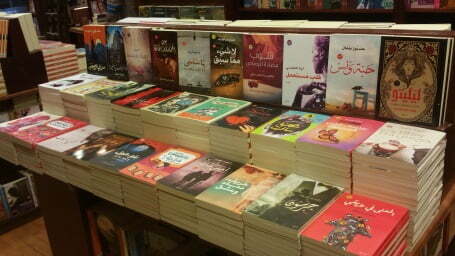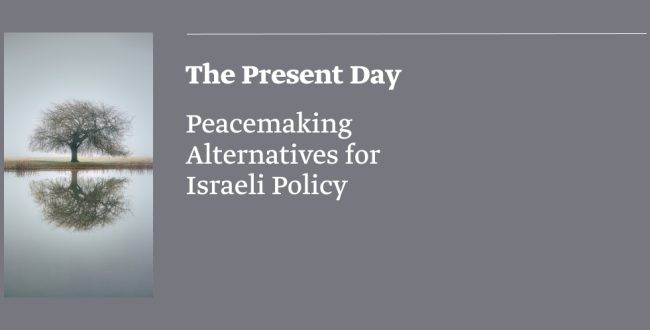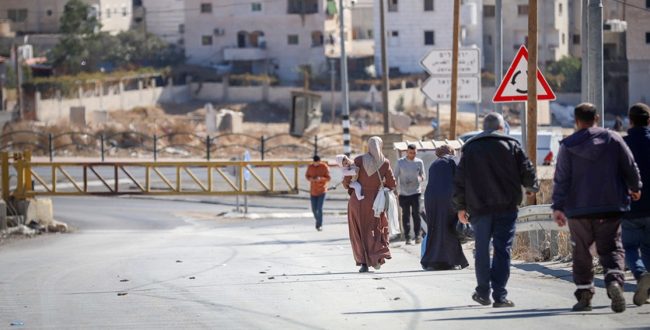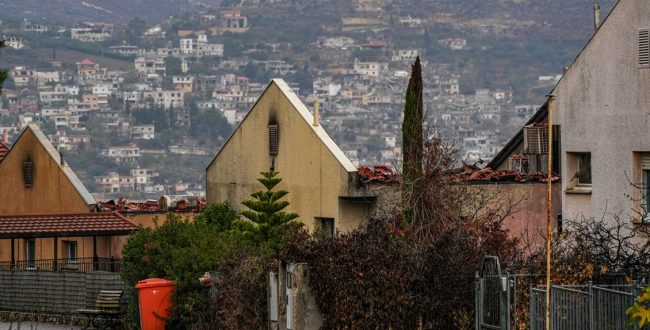Is an Israeli publisher going to stand trial? This question has the local literary scene seething after the discovery of a copyright infringement. At the heart of the scandal lies Huriya – a collection of stories and essays written by 45 Arab women across the Middle East, edited and translated into Hebrew by Dr. Alon Fragman and published by Resling, an Israeli academic publishing house. Most of the authors made no comment, but the responses of a few were enough to spark an outcry. They stated that Resling had not asked permission to publish their works. These writers spoke out sharply against Israel and declared that had the publisher contacted them, they would not have agreed to cooperate with the occupier and certainly would not have wished to have their work included in the anthology. Threat of a lawsuit, first mentioned on social media, quickly followed.
Yet legal action against Resling would be a long and complicated process. The major obstacle is political. For anyone who rejects ties with Israel, taking the matter up with an Israeli court would be considered “breaking the boycott”. Any writers choosing this avenue would have to explain to their home audience why they decided to engage with the Israeli justice system. This barrier is unique to the relations between Israel and its neighbors. Were the writers Italian, British or Russian, the problem of normalization would not be an impediment. The writers and their supporters appear to recognize this. At present, Resling seems to be headed for a “public trial” on social media and in the press.
Yet this scandal must not overshadow the broader reality. The fact is that professional ties between Israeli publishers and writers from Arab countries have never been more properly organized. Publishers are purchasing or legally obtaining translation rights and texts are being printed with permission. A decade or two ago, Israeli publishers began developing professional standards in their treatment of Arabic literature, along with a respectful attitude towards the authors. Since the big publishers entered the picture, this trend has increased and international standards have been introduced. One example is Kinneret-Zmora, which has published six novels from the Arab world in Hebrew since entering the field in 2013. As I was involved in selecting, translating and editing the texts and am familiar with the inner workings of this publishing house, I can vouch for the fact that each and every one of the books was published without copyright infringement. More translations are under way, based on the same respectful practice, by Kinneret-Zmora and other Israeli publishers.
The Huriya affair is primarily about a clash between politics and literature. Where else do politics come into play? This affair reminds us that literary translation from Arabic into Hebrew is the vanguard of cultural contact between Israel and its neighbors. In fact, it is the only cultural scene in which the prohibition on normalization with Israel has begun to crack.
Daily relations between Israel and its neighbors, including signatories to peace treaties, have not improved much in recent years. There is very little normalization and hardly any contact on the level of civil society. Supporters of the boycott attribute this to the Palestinian issue. In Egypt, the regime thwarts any attempt to engage in warmer ties with Israel. Jordan is hard put to overcome anti-Israel sentiment on the street and does not encourage a “warm peace”, either. The UAE and Saudi Arabia, which some have dubbed “friends of Israel”, limit ties to backchannels and in any case these alliances center on security and military concerns. In this reality, literary translations stand out as the one area in which breakthroughs are constantly occurring. In other words, the writers of the Middle East are far ahead of the politicians.
The numbers speak for themselves. Just last year, seven books by Arab writers were published in Hebrew in Israel, all in accordance with the law: The Automobile Club of Egypt (Alaa Aswany), Au Revoir Akka (Ala Hlehel), The Children Laugh (Zakaria Tamer), Children of the Ghetto – My Name is Adam and Entanglements of Secrets (Elias Khoury), The Clothesline Swing (Ahmad Danny Ramadan, originally published in English) and I Own Nothing Save My Dreams (an anthology of Ezidi poetry). The first four were on Israeli bestseller lists for varying lengths of time.
Surprisingly, despite being the leading opponent to normalization, Egypt has actually played a major role in this development. Among Egyptians whose works have been translated into Hebrew in recent years are two of the country’s most famous writers – Alaa al-Aswany and Youssef Ziedan. Translations of works by their fellow countrymen lie ahead, and even public opinion has relaxed somewhat. While Aswany was attacked in 2016 for having his book The Yacoubian Building published in Hebrew, this did not recur with similar force in 2018 when his second novel was published in Hebrew.
Literary ties are also growing warmer with Iraqi writers, who officially live in an enemy country. “The dream has become a reality”, said Taha Hamid al-Shabib in a 2017 interview with Israeli news site Ynet following the publication of his novel The Sixth Story in Hebrew. An Iraqi writer who suggested that her novel be translated into Hebrew wrote to me recently in an email: “I’m glad to know you’re interested in translating texts from Iraq.”
Arab intellectuals and writers have repeatedly spoken out in favor of contact with Israelis, sowing the seeds of the idea that working with Israeli publishers is legitimate. “The whole Arab-Jewish question has to be re-examined”, said Youssef Ziedan in an interview with Al-Youm Al-Sabea in December 2013, several months after his novel Azazeel came out in Hebrew. Sudanese author Souad Mahmoud al-Amin, whose story was included in the anthology that sparked the furor, said to Palestinian daily Al-Ayam:
Literature plays an important role in conveying the culture of societies. I always hoped that texts in Arabic would be translated into Hebrew, so that they could convey to Hebrew-speakers the experience of life in our societies and what problems Arab peoples suffer due to the occupation. We may even gain readers for our varied novels and stories, our prison literature, and our writing about war and its consequences. That is why translation into Hebrew is in the interest of Arab literature: to draw readers from Israel who can learn what is going on in Arab societies, as opposed to what is filtered through the media machine, which is biased against the Arab peoples.
Egyptian sociologist and human rights activist Prof. Saad Eddin Ibrahim, who attended an academic conference in Tel Aviv in January 2018, rejected the harsh criticism levelled at him for promoting normalization with Israel:
I want to mention here three reasons why I believe it is time to revisit our stance against engagement with Israeli academics. […] I found that engaging with academics gave me a more complex understanding of Israeli society. […] I challenge anyone who rails against “normalization” with Israeli academics to point to one positive outcome for Palestinians from nearly 40 years of Egyptian refusal to engage. Perhaps that is long enough. Perhaps it is time to allow some of us to examine seriously what may be gained from taking a different path.
Perhaps the Huriya affair is a symbolic crossroads separating the old Middle East from a new one. Translation of Arabic literature into Hebrew is a field that is changing for the better. The boycott is weakening, respect for copyright is increasing, and readers are showing more interest. While no one can promise that the copyright of an Arab writer will not be infringed tomorrow, any Israeli publisher considering this option is now likely to think twice.
Tami Chapnik is an editor of translated Arabic Literature
Translated by Michelle Bubis
















